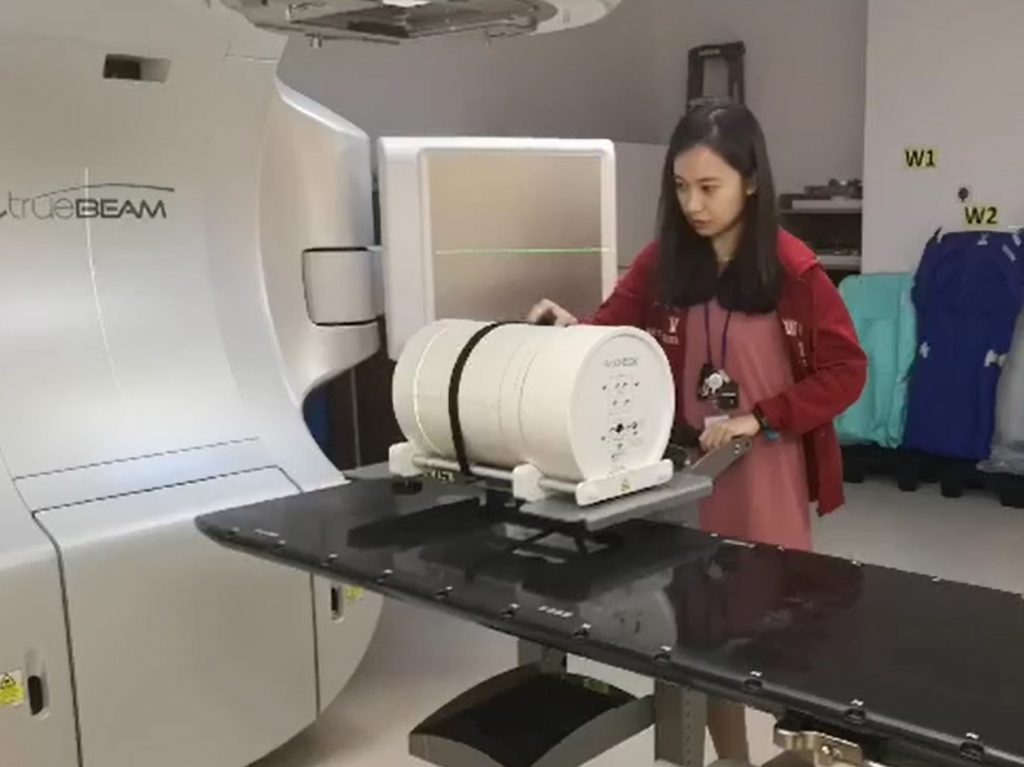Our Alumnus Speaks …
Miss Joy Sng [BSc (Hons) 2019] is a medical physicist at the National Cancer Centre Singapore. She shares her insights concerning career options.
Share with us about your current job at the National Cancer Centre Singapore (NCCS).
I am currently working as a medical physicist in the Division of Radiation Oncology in NCCS. We specialise in cancer treatment using high doses of radiation. My role is to ensure accurate dose delivery to the cancer patients and general radiation safety in the department. This entails treatment planning, quality assurance of treatment plans, calibration of the treatment machines and commissioning of new radiotherapy equipment.
How do you think a physics education has prepared you in your present job?
It is common to hear, “you don’t need such advanced theoretical physics knowledge to apply them in real-world situations”. While there is some truth in it, I feel that learning these physics theories has made me appreciate their applications in radiotherapy better. For instances, I am able to have a better grasp on the properties of the clinical beams, and the methods we use for dose measurements, computation of patient dose, analysis of quality assurance results, etc. I guess my physics education has also trained me to be more analytical and number sensitive which are advantageous in my job.
What are some of the career options you think physics majors can look at upon or even before graduation?
Personally, I have considered having a career in the education or management field if medical physics did not work out. I have friends from NUS physics who have gotten into various sectors such as public service, education, engineering, semiconductor, academia, finance and technology. I guess we do not have to restrict ourselves to jobs that have direct link to physics because ultimately, it is the problem-solving and logical thinking skills that we have cultivated from our physics education which will aid us in our jobs.
What are some skills you think undergraduates today could pick up in order to succeed in today’s workplace?
In my opinion, computing skills will be a huge advantage as they are highly demanded across many industries. It is also important to gain hands-on skills and hence, it will be good to have some internship experience.
Is there any other advice you would like to give our undergraduates?
Don’t be afraid to approach your professors or other faculty members for advice beyond school work! They are usually very friendly and willing to guide students in preparation for life after graduation with their many years of experience. I had personal experience with some of them when I was feeling lost about my plans after graduation and I have gained useful insights which I am grateful for till today.


